json-toy (json-treeify)
Stable version(>=1.0.0); Recommended version (>=2.0.0)
Some simple methods for operating object as json in an easy way!
OnlineParser: https://froguard.github.io/funny/treeString
feature
-
1.jt.treeify(jsonObj1) or
$ jts ./path/1.json(cmd line) convert a jsonObj to a tree-like string to print out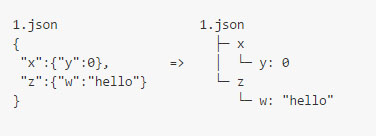
$ jts -dor$ j-tree-str -dconvert a file directory to tree string, and some diy in github-issues by diy-theme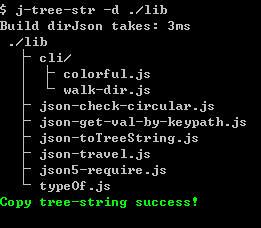
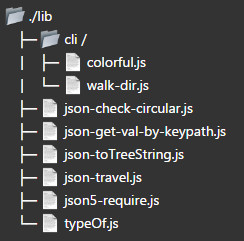
-
2.convert directory to json obj and tree-structure-string
-
3.jtls show directories like cmd ls, but in a tree string like
-
4.Simple none dependencies, except use cli (need copy-paste, yargs)
-
5.Cross platform nix(linx,mac-Osx) and windows, support for multiple browsers(IE9+)
-
6.jt.travelJson(jsonObj,cb) Safe recursive walk of a jsonObj,even though obj is circular!
-
7.jt.getValByKeyPath(jsonObj,'x.y.z.1.2') <=> jsonObj.x.y.z[1][2]
-
8.jt.checkCircular(obj) check the obj,and return some useful info
installation
$ npm install json-toy -g
$ jtls
Or if you haven't use the npm,you can do like this ,add json-treeify.min.js or json-treeify.min.js-on-cdn-resource just 3.6kb
The core file has no dependencies,and just 3.6kb size;
Usage
Feature1. json treeify
convert a json to tree string,you can set options like space(hoz and vert),need output val,root name,max depth in convert directory.
and there is two ways to use:
-
use
jt.treeify(jsonObj,options)to convert json to tree-string -
use cmd line $ jts (or j-tree-str) your/json/file.json (Recommend)
A tree string convert from string which typed in cmd line
$ jts '{a:1,b:{d:2},e:3,}'$ jtls ROOT
│
├─ a: 1
│
├─ b
│ │
│ └─ d: 2
│
└─ e: 3
A tree string convert from my package.json
$ jts ./package.jsonor
$ j-tree-str ./package.json ./
├─ .gitignore
├─ .npmignore
├─ .travis.yml
├─ bin /
│ └─ j-tree-str.js
├─ coverage /
│ ├─ coverage.json
│ ├─ lcov-report /
│ │ ├─ base.css
...
└─ webpack.config.js
jsonToy.treeify(jsonObj),support multiple primitive type
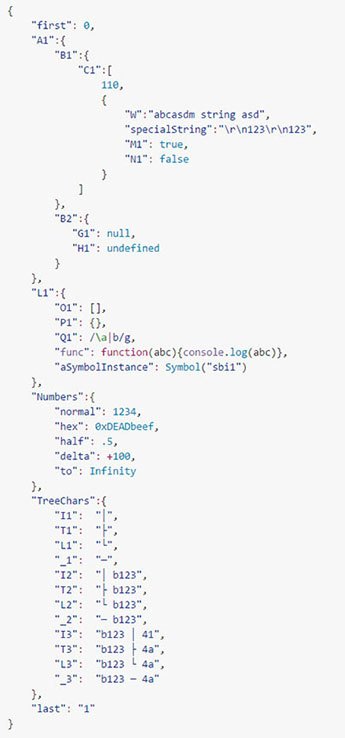 =>
=> 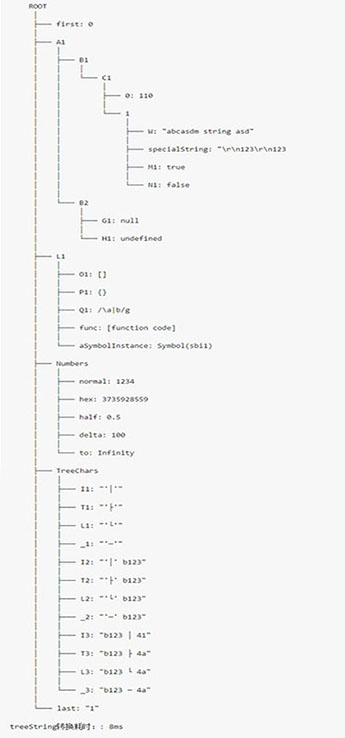
Online Parser: https://froguard.github.io/funny/treeString
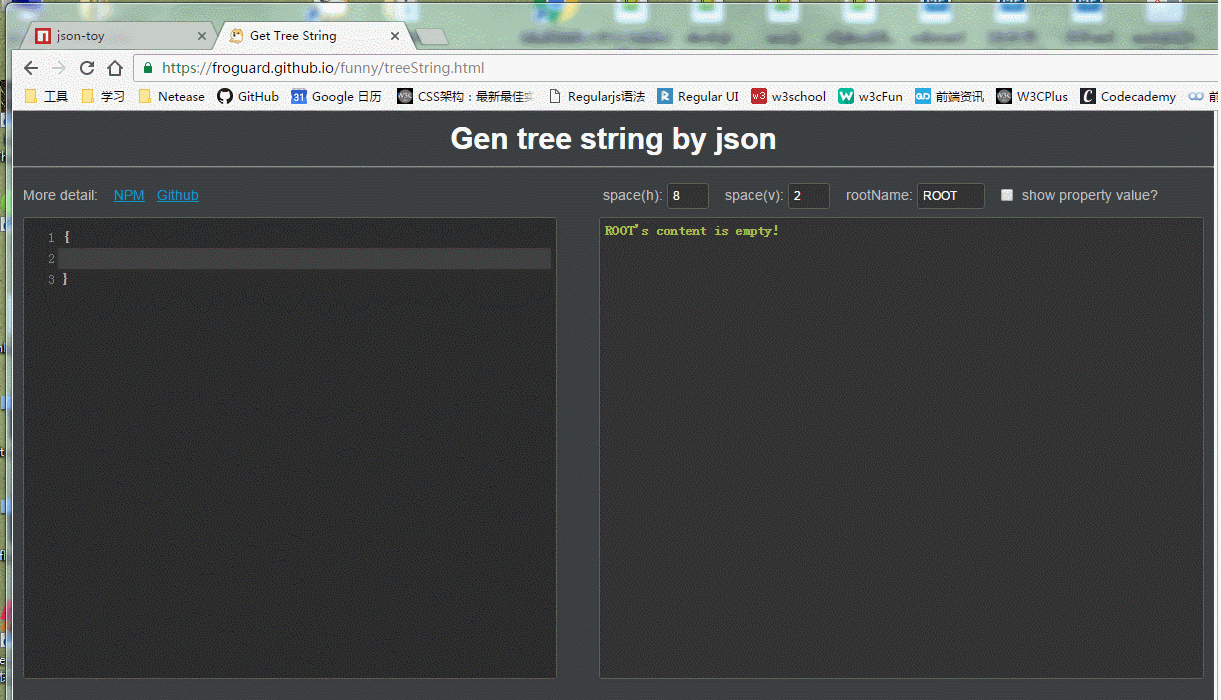
Feature2. get property 's value by key-path
let jt = ;let jsonObj = "x": "y": "z":"hello,world!" "w": 012"a""b""c" ;console;// "hello,world!"console;// "b"If property name include '.' like 'a.b.c'
You can get it by a trans char set
• ←→ .
jt;// ←→ jsonObj["a.b.c"]and & ←→ &
jt;// ←→ jsonObj["•"]jt;// ←→ jsonObj["&"]jt;// ←→ jsonObj["&"]Feature3. travelJson (recursion)
A safe travel method to recursive walk of a obj,even though a circular obj.
{ //let parentPropObj = this; console;}let keyPathsArr = jt;Feature4. check the circular obj
let json = "a": "b": "c":1 "d": "e": "f":2 ;jsondeg = jsonde;jsondeh = json;let res = jt;// console.log(res);you can get some useful information from res:
Feature5(only node supports!). convert a directory to json obj
// use just only in nodelet travelDir = ;let dirJson = ;console;cli-help
$ jts helpquestion
-
$ jts xx.json: the distance in command-print-out:
don't worry ,'d1' is equal to 'd2' actually, The reason why u've saw difference is that the char ' ' width is shorter than other chars in command prompt
-
copy-paste-feature,json-toy used system shell command line to exec copy,so you may get some string pre space char '' was removed by sys. if you paste in a *.js file.like this
1json│├─ w│ ││ └─ x│ ││ └─ y: 1│└─ w2│└─ xxx: 1eh...You'd better paste in a text file like *.md or *.txt or others ext
1.json│├─ w│ ││ └─ x│ ││ └─ y: 1│└─ w2│└─ xxx: 1





